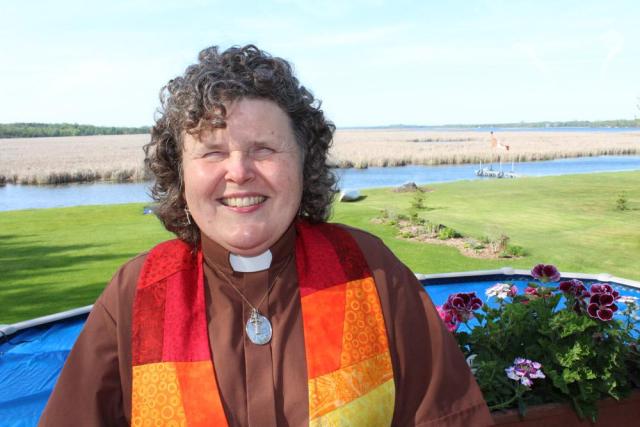While I do not want to be overly defined by my disability, an on-going commitment to advocacy is still required.

People sometimes share that they forget I am a person who is totally blind. I experience this as a good thing, an acknowledgment that they feel acceptance, and embrace me for who I am, my abilities and disabilities.
When I or others are not focusing on my disability and “forget” it, so to speak, it is not really forgotten. I don’t believe that people intend to dismiss my blindness.
People really don’t overlook I am blind. That is certainly not avoidable. Trust me! People don’t suddenly ignore my seeing eye dog at my side. They don’t suddenly stop needing to self-identify when they are speaking or not tell me when the furniture in the church hall has all been rearranged. I don’t suddenly stop using an audio ear bud at the same time I am wearing my wireless microphone when leading worship or a workshop. I don’t suddenly stop preferring that people text or email me information instead of giving me a handwritten note. It does not mean people stop holding their breath when I am wandering at the front of the sanctuary because they are anxious I might walk off the steps. I understand the context for me, but it may feel differently for other people, those with a disability or other forms of marginalization.
This summer, I was part of a focus group for a PhD study of blind academics in which a common thread emerged for our particular small group. We all self-identified as over achievers, set high bars for ourselves, needing to prove ourselves and feeling reluctant to ask for help.
For me, feeling the need to prove myself and not show weakness or vulnerability, I grapple with the question about the need for advocacy. Is the need for advocacy something society puts on me, or something I create?
Is it my responsibility to advocate and educate others and call on society to advocate for those with disabilities? I think we all want to get to the place where advocacy is just what we do, accepting of people for who they are and where they are. But at this point in time, I believe those of us who live with disabilities or are marginalized are still in a place of needing to pro-actively advocate and educate others. As much as we may want people to get it, to be accepting, to create intentional welcoming, inclusion, belonging, valuing and being needed, I am naive if I assume we are there already.
Dr. Thomas Reynolds, associate professor and vice-principal of Emmanuel College, Toronto School of Theology, coined the phrase “cult of normalcy,” describing our perceptions of acceptability being viewed through the lens of what is perceived as normal. While I do not want to be overly defined by my disability, an ongoing commitment to advocacy is still required.
I may be able to advocate and educate from my perspective as a totally blind person, but my voice reflects my story, and won’t necessarily fit for another person who is totally blind. There are so many other factors in my life that provide me privilege, position, and power. It does not mean I “get it” for others who live with vision loss, people living with other visible or invisible disabilities, their families or other marginalized groups that may identify differently from those that identify within perceived “normal,” whatever that is.
The perceptions of our “cult of normalcy” need to continue to be challenged and confronted, they are begging us to rip down the barriers, stigmas and divides of “them” and “us.” All our stories need to be shared in the on-going journey to learn with and from others.
— Sharon Ballantyne is ministry personnel, serving a rural pastoral charge about two hours northeast of Toronto. A 2018 McGeachy Senior scholar, her work is focusing on equity. You can reach her by email.
Learn more about Disability Ministries in The United Church of Canada.